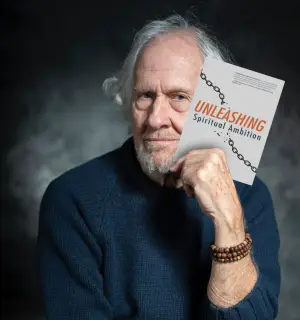Good Inside: A Practical Guide to Resilient Parenting by Dr. Becky Kennedy – A Balanced Reflection
When I first picked up "Good Inside: A Practical Guide to Resilient Parenting" by Dr. Becky Kennedy, I felt a wave of excitement. As someone who has devoured countless parenting books (yes, it’s officially one of my hobbies), I was eager to dive into her insights on gentle parenting—a method that’s sparked so many discussions in my circles. While I appreciate the general ethos of gentle parenting, I also carry some reservations about its sometimes overwhelming expectations. So, how does Dr. Kennedy’s approach resonate with my experience?
At its core, "Good Inside" centers around fostering a close, considerate relationship with your child based on mutual respect. Dr. Kennedy argues that this bond is the cornerstone of successful parenting outcomes. I wholeheartedly agree. There’s significant truth in her assertion that a child’s quest for attention is often at the root of negative behaviors. Regular one-on-one time, she suggests, can be a game changer—something I’ve found to hold true as I navigate parenting three children of varying ages.
But while Dr. Kennedy strikes many chords positively, the book eventually veers into territory that raised my eyebrows. She places the onus of a child’s emotional well-being squarely on the shoulders of the parent. As I read, I couldn’t help but recall Thomas Boyce’s differentiation between “dandelion” and “orchid” children. Dr. Kennedy, like many clinical psychologists, appears to primarily engage with those "orchid" kids—who indeed may require more nurturing to thrive. Yet, I found myself reflecting on how most parents have successfully navigated the maze of childhood without intensive methods.
What about the pressures painted by the book? The idea that our kids’ emotional landscapes hinge on our every move felt burdensome, almost coercive. Dr. Kennedy implies a nearly scientifically foolproof path to raising emotionally healthy children if parents follow her approach. However, parenting inherently comes with imperfections. A balance exists that doesn’t require complete emotional management from parents.
As for writing style, Dr. Kennedy’s prose is accessible and warm, making it easy to connect emotionally. She shares memorable anecdotes that resonate with anyone who has ever faced the chaos of parenting—her examples are often relatable. However, some recommendations pose practical challenges. For instance, her meticulous approach to validating every emotion can backfire, as I experienced firsthand with my own children.
In a world where many families thrive without continuous emotional heavy lifting, “Good Inside” leans deeply into gentle parenting as if it’s the panacea to all childhood woes. For instance, Dr. Kennedy cautions against the traditional method of encouraging a hesitant child into a birthday party, prescribing instead an extensive process of reflection and validation. Yet, I wonder if this approach fosters more anxiety than resilience.
In conclusion, while “Good Inside” lays a foundation of understanding and connection, it also raises questions about practicality in day-to-day parenting. Parents looking to deepen their bond with their kids may find valuable insights here, but it’s just as essential to remember the wisdom gleaned from a multitude of parenting experiences over millennia. For me, this book has sparked both intrigue and caution, leaving me more reflective about my parenting journey and the diverse methods available.
If you’re signing up for an exploration of gentle parenting with a thorough clinical lens, then “Good Inside” might be worthwhile. But take it with a shaker of salt—because the beauty of parenting lies in often messy imperfections, not just the guidelines we follow.
Discover more about Good Inside: A Practical Guide to Resilient Parenting P… on GoodReads >>






